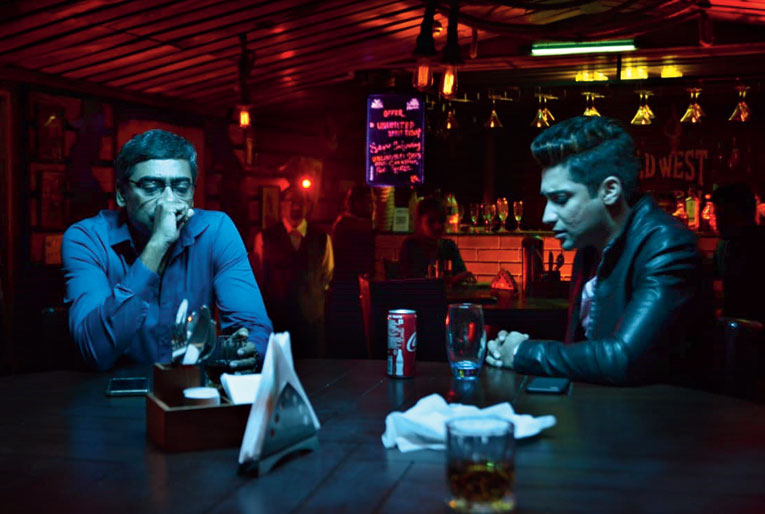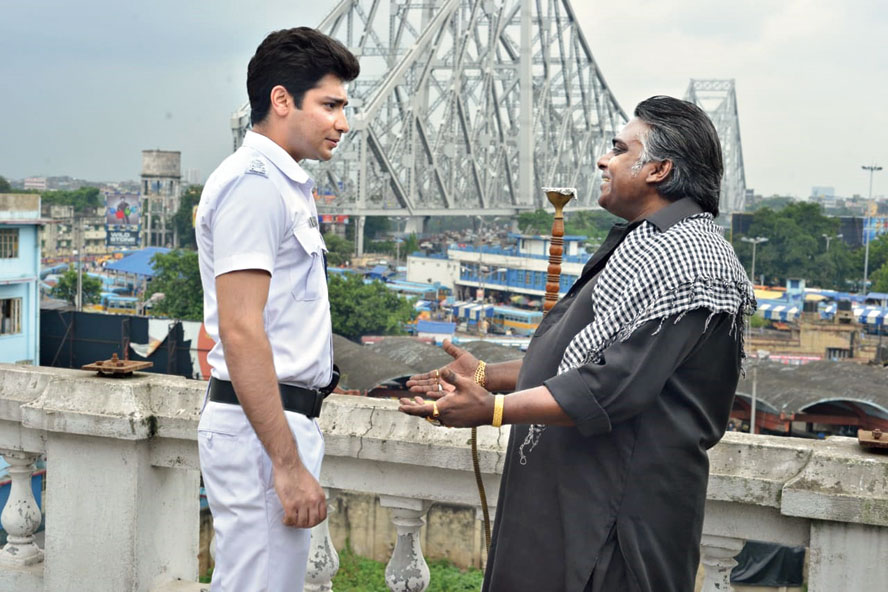Some of his fave crime shows are Money Heist, Peaky Blinders, Narcos, Sherlock, Criminal Justice and Breathe. And actor Gaurav Chakrabarty will soon be seen in one — Lalbazaar, which starts streaming on Zee5 from June 19. A t2 chat...
Why did you decide to do a web series and why pick Lalbazaar?
Lalbazaar is the first web series that I have been a part of. The reasons for doing it are multiple. First, I loved the story and the script. It took two sittings to hear the entire narration. I was hooked onto it all through. Rangan Chakravarty has really delved into the dark underbelly of Calcutta. Second, I loved my character a lot. Third, working with Sayantan Ghosal and team is something I really look forward to every time.
How tough was it to shoot in two languages?
It wasn’t really tough. It was a new experience. Fortunately, I am quite fluent in both Bengali and Hindi. So language wasn’t an issue. Redoing every take after it was okayed took some getting used to. It was also important for me to think in the language I was speaking in. Constantly shifting between Bengali and Hindi in my brain was an interesting experience.
How different is it to shoot for a web series as opposed to a film?
Shooting for a web series is like shooting for a very long feature film. Most films nowadays are shot in under 20 days. Sometimes in under 15 days. Lalbazaar was shot over 60 days. It took about that time to complete the entire shoot. I worked for a major chunk of the time but not all 60 days. The schedule of Lalbazaar was spread over a few months. So it felt like we were shooting for months on end. And at times, we were simultaneously dubbing for the completed portions. It was quite hectic. But since I was enjoying the work, it was a lot of fun too.
How do you keep your focus?
Keeping focus is simple. You have to know the material well and you must understand your character thoroughly. The rest should come automatically. And if you falter, the director is there to guide you. It’s best not to overcomplicate things.
Tell us about your character in Lalbazaar...
I play Sabir Ahmed, OC Watgunge police station, an honest family man who is a daring police officer. There are so many shades to this man that it has been an absolute pleasure playing him.
How did you prepare for the role?
I’ve played so many cop roles over the past few years that I feel I came prepared (laughs)! But on a more serious note, I tried observing police officers, specially younger police officers. They have a very distinct body language. Getting that right was of utmost importance. Ranganda’s script was very detailed, so that helped. And Sayantan was the guiding factor on set.
Your father Sabyasachi Chakrabarty is there in the series...
Unfortunately, I had no scenes with him. We were on set together at times but we didn’t have any scenes where we interacted with each other.
What was your takeaway from the whole Lalbazaar experience?
I have a better understanding of the kind of work a police officer in Calcutta, or for that matter in any big city, is expected to do on a daily basis. Let me assure you, it is one of the most difficult jobs in the world.

Koushik Sen and Gaurav in Lalbazaar Picture credit: Screengrab
What can the audience expect from Lalbazaar?
Reality. Most police stories are glamorous dramatisations. Lalbazaar has tried to stay as true to reality as possible. In fact, some incidents are based on real stories. Never-a-dull-moment is what audiences can be assured of.
And how was it like being directed by Sayantan for a series?
Working with Sayantan is always a pleasure. He, his associate Subhodip Ghosh, DoP Ramyadip Saha and art director Pavel Rishi are a close-knit team. And Surinder Films provides the perfect foil. This is the third time I have collaborated with this team after Sagardwipey Jawker Dhan and Tenida. We have developed quite a camaraderie among ourselves. Sayantan’s highest point, I believe, is that he is technically extremely sound. He edits most of his own work and therefore looks at a scene from an editor’s perspective. I, being an academically educated editor myself, really appreciate that. It brings a lot of clarity to the table. Also, he is extremely calm. Managing such a massive schedule with an equally massive cast and crew must have been arduous. Yet Sayantan and his team made it look like a walk in the park.
How have the last couple of months been for you? How are you holding up?
I’m the kind of person who enjoys staying home, so the last couple of months have been quite alright. I’m fortunate to have a roof over my head and a wonderful wife (Ridhima) to share all my time with. I’ve really missed meeting family and friends though.
What’s a day in your life like now?
House work in the morning, an episode of a web series while having lunch, an afternoon siesta, maybe watching a movie in the evening, dinner, dish-washing, reading a book, sleeping. That’s about it. That’s the usual day for me. With a few other things interspersed sometimes.
Are you one of those who is sticking to a strict daily routine?
Yes. Not strict as in unerring. But we do try to stick to a basic routine at home. Just so the biological clock does not go for a toss.
Have you picked up any new skill during this time?
I am in the process of getting more proficient with my DSLR. I mean, I know my way around it, I have been using it for a few years now. But it is a complicated piece of machinery and there is always more to learn.
What’s been a big change in your life during this lockdown?
The lockdown itself has been a huge change in everyone’s lives. The fact that you are in the confines of your home for over two months straight is quite a big change.
What are the new things that you learnt about yourself during this lockdown?
I have learnt to be self-reliant more than anything else. With the virus and the cyclone, it’s been testing times.
What are the new things that you discovered about Ridhima during this time?
I’ve discovered that she can be extremely calm in tense situations. I’ve learnt that she can pick up any skill she puts her heart and mind into. And I’ve also discovered that she is a wonderful cook with MasterChef-level food plating skills!
Are you looking forward to going back to shooting?
Most definitely. I enjoy my work and am looking forward to the day we can resume working.
What is the way forward for film shoots?
It is a catch-22 situation at the moment. Shooting requires a massive number of people to gather together. That seems to be a scary proposition considering the current global scenario. But without shoots, so many families stop earning a living. So we adapt. When shoots resume, there will be certain guidelines, like implementation of safety precautions on set, sanitisation of sets, masked crew, bare minimum number of people, home-cooked food, etc. But these are temporary solutions. If you ask me, the only way forward for the world is a Covid-19 vaccine. That is the only conclusion a layman like me can come to.
I’m the kind of person who enjoys staying home, so the last couple of months have been quite alright. I’m fortunate to have a roof over my head and a wonderful wife (Ridhima Ghosh) to share all my time with. I’ve really missed meeting family and friends though











